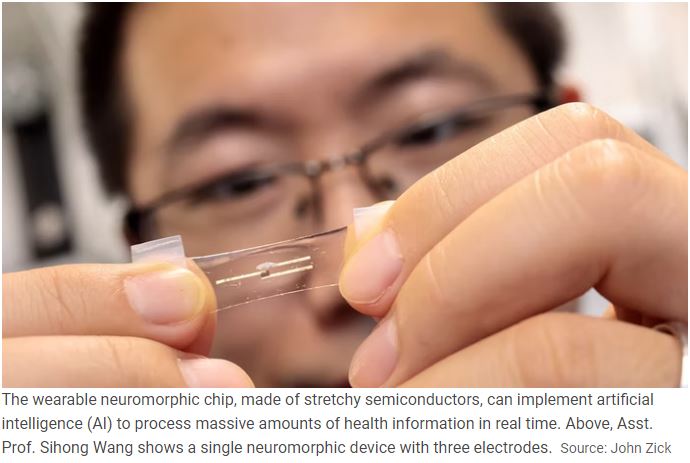The benefits of an Apple® Watch without the watch? “Researchers at the University of Chicago’s Pritzker School of Molecular Engineering have developed a flexible, stretchable computing chip that processes information by mimicking the human brain.”
This technology is centered around the popular trend of wearable technology and ever-growing artificial intelligence. The hope is that this type of wearable technology will enable people’s health to be tracked continuously which could potentially detect disease before the symptoms even appear. Some of the indicators that could be monitored include oxygen, sugar, metabolites, and immune molecules in the blood. The ability for this technology to conform to the skin allows it to move with the skin and allows for a much more intimate connection resulting in more accurate health information. The longer-term goal of this device is to provide real-time alerts to patients or clinicians and eventually tweak medications automatically.
The medical device industry is no stranger to real-time data, implantable insulin pumps have been around since 1986 so while the basic technology isn’t new, a smaller, less intrusive option would be intriguing to many.
With new innovations come new regulations and requirements, and potential labeling challenges. Pragmatyxs knows the regulatory challenges of many medical device companies and has worked within some of the most regulated environments in this area. As companies invest in new technology, having trusted partners that can be a part of the process will enable companies to keep their focus on moving the company and their products forward.
